
Keyword Clustering: The Only Guide You’ll Need
Google’s tech gurus have been busy working on understanding language and how words connect on a webpage. They’ve come up with tools like ‘neural matching’ and ‘BERT’, and with every Google update, the search engine is becoming more and more sophisticated.
But just because Google’s getting smarter, doesn’t mean businesses are keeping up. A lot of website owners are still stuck using outdated tactics, optimizing their websites with just a handful of keywords. That’s old school SEO, especially when we know our web pages end up ranking for a ton of keywords anyway.
For those of us who’ve been around since Google was just a baby, this feels like a whole new game for on-page SEO. As Google’s language skills get better, our on-page SEO game needs to step up too. That’s where keyword clustering comes in.
Quick Takeaways
- Keyword clustering makes a webpage seem more relevant to search engines, increasing the webpage’s traffic and engagement
- There are 3 main methods of keyword clustering, each having their own advantages and requiring different levels of effort and expertise
- Almost 95% of keywords get 10 monthly searches or less
- Keyword clustering requires website owners to think more broadly about content to help their web pages rank for the long term
Keyword clustering helps us optimize our content in a way that matches Google’s language understanding. By using keyword clustering, we can make sure our content ranks high across a bunch of relevant keywords, giving us more visibility in search results.
What Is Keyword Clustering?
Keyword clustering involves grouping related keywords together based on things like:
- What they’re about (topic)
- What they’re trying to do (search intent)
- Other connections (semantic relationships)
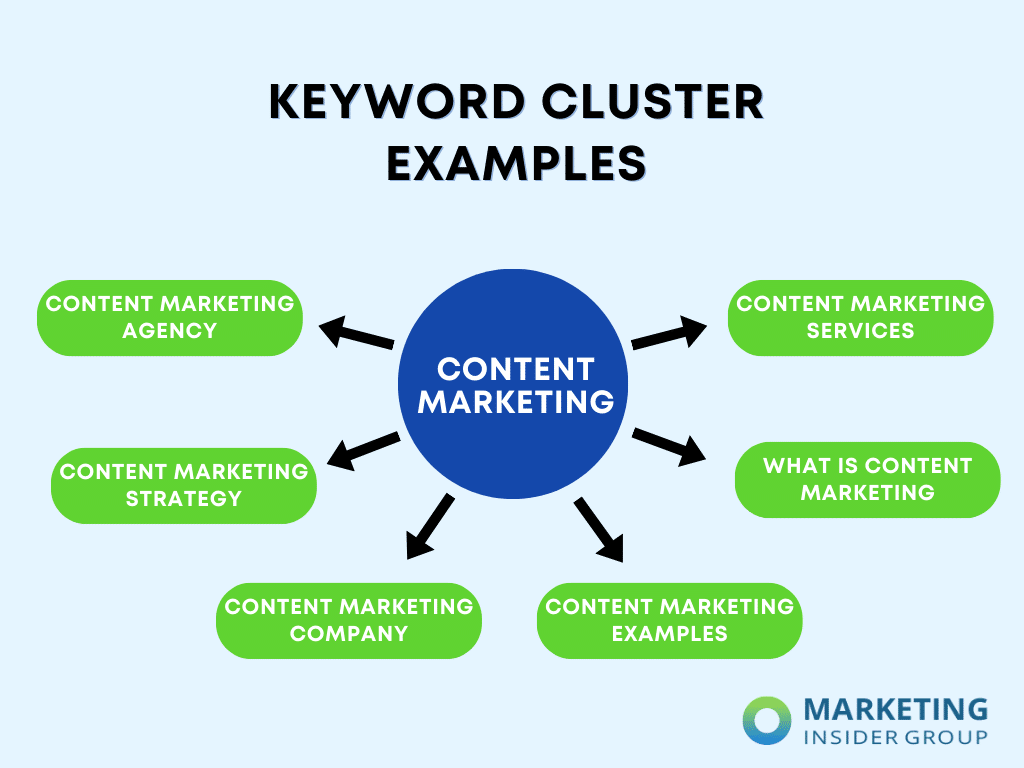
The goal of keyword clustering is to get a webpage to rank for a group of related keywords, instead of just one or two. This way, your page has a better chance of increasing traffic and engagement.
Keyword clustering also helps search engines, like Google, better understand your webpage. By grouping related keywords together, you make your page seem more relevant and raise your chances of climbing up the ranking ladder.
How To Do Keyword Clustering
Keyword clustering isn’t as fancy as it sounds. It’s really just a simple series of steps that can help you organize your SEO strategy.
1. Build a Keyword List
First, you need to know what you’re working with. Start by building a list of keywords that are relevant to your business by:
- Using keyword research tool
- Hosting brainstorming sessions
- Analyzing competitors’ keywords
The goal here is to compile a hefty list of words and phrases that your potential customers might search to find businesses like yours.
2. Categorize Your Keywords
Now that you’ve got your list, it’s time to get organized. Group your keywords into categories based on their similarities.
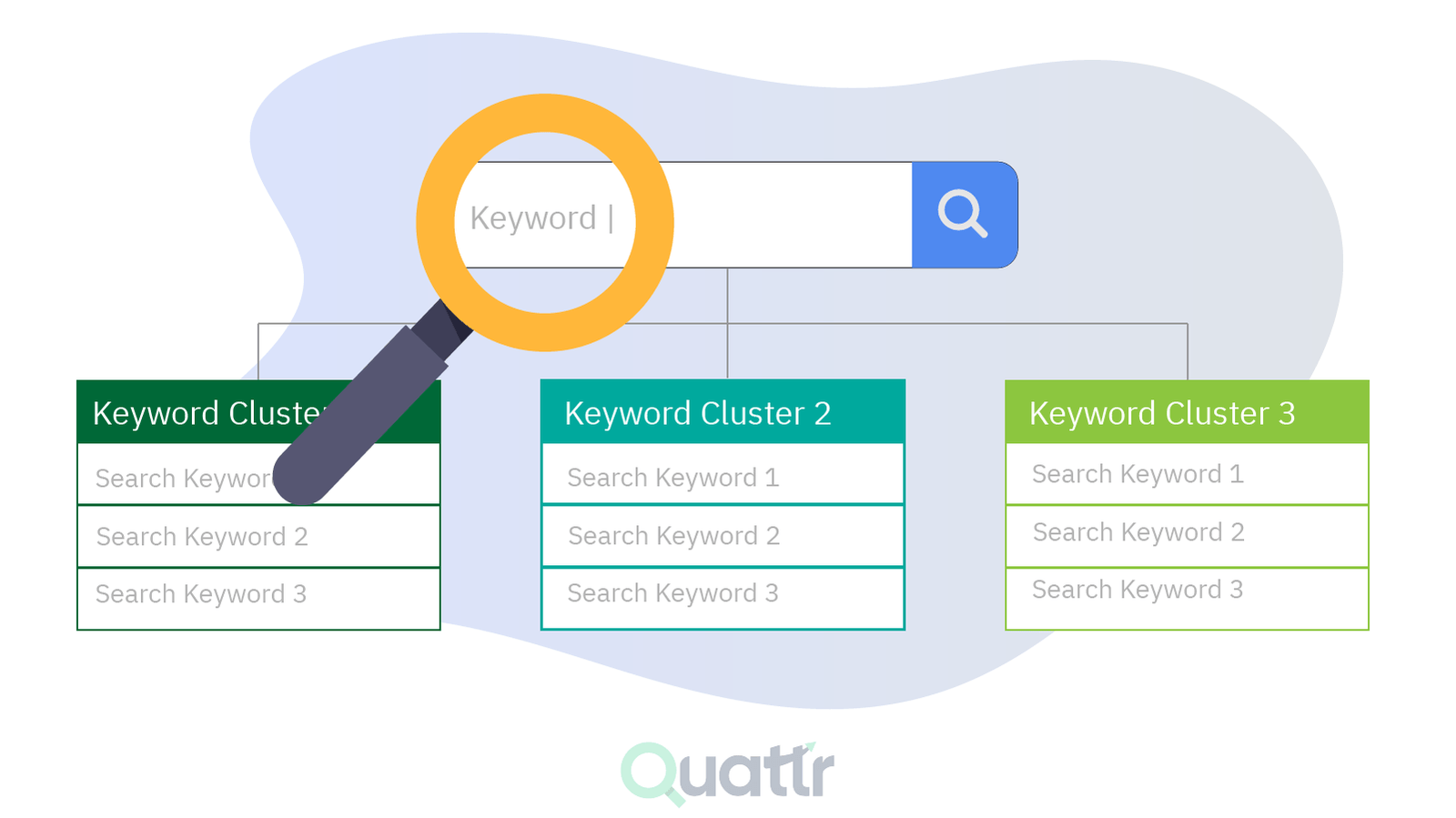
Image Source: Quattr
Maybe they’re related to the same topic, have the same search intent, or are just semantically related. The idea is to create clusters of keywords that can be targeted with the same page on your website.
3. Plan Your Keyword Strategy
With your keywords neatly categorized, you can start to plan your keyword strategy. This involves deciding which pages of your website will target which keyword clusters.
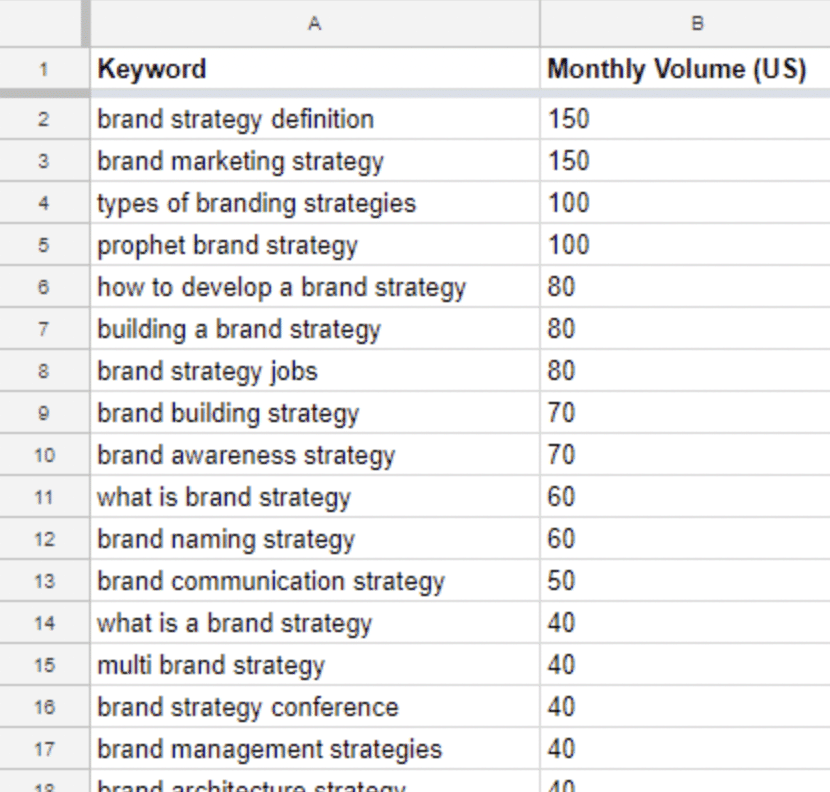
Image Source: Moz
Remember, the goal here is to get each page to rank for a whole bunch of closely related keywords. Be sure to prioritize your keywords according to search volume and your business’s goals. According to Ahrefs, almost 95% of keywords get 10 monthly searches or less, so targeting easy-to-rank-for keywords in the beginning can start you off on the right foot.
4. Optimize Your Content
Next up, it’s time to make your content the best it can be. Whether you’re working with existing content or creating something new, you’ll want to make sure it’s optimized for your keyword clusters.
This means naturally incorporating your target keywords into your content, making sure it’s high-quality and valuable to your readers. You also need to stay on top of your other SEO tactics, like using meta tags and alt-text.
5. Track Your Keyword Rankings
Last but not least, you need to keep an eye on your progress. Use an SEO tool (we like to use Semrush) to track how your pages are ranking for their target keywords.
This step will help you see if your keyword clusters are paying off, and where you may need to make some adjustments.
3 Keyword Clustering Methods
When it comes to effective keyword clustering, there’s a few different methods you can use. Let’s take a look:
1. Manual Clustering
This is the old-school, hands-on approach. With manual clustering, you’re:
- Going through your keyword list
- Grouping related keywords together yourself
- Looking for common rankings for your keywords among SERPs

Image Source: Ahrefs
It can be time-consuming, and you might end up with a keyword that doesn’t quite fit anywhere, but manual clustering gives you total control over the process.
2. Parent Topic Clustering
Parent topic clustering is a bit more high-tech. This method uses SEO tools to identify the “parent topic” for each keyword, or the keyword that sends the most traffic to the top-ranking page for a given keyword.
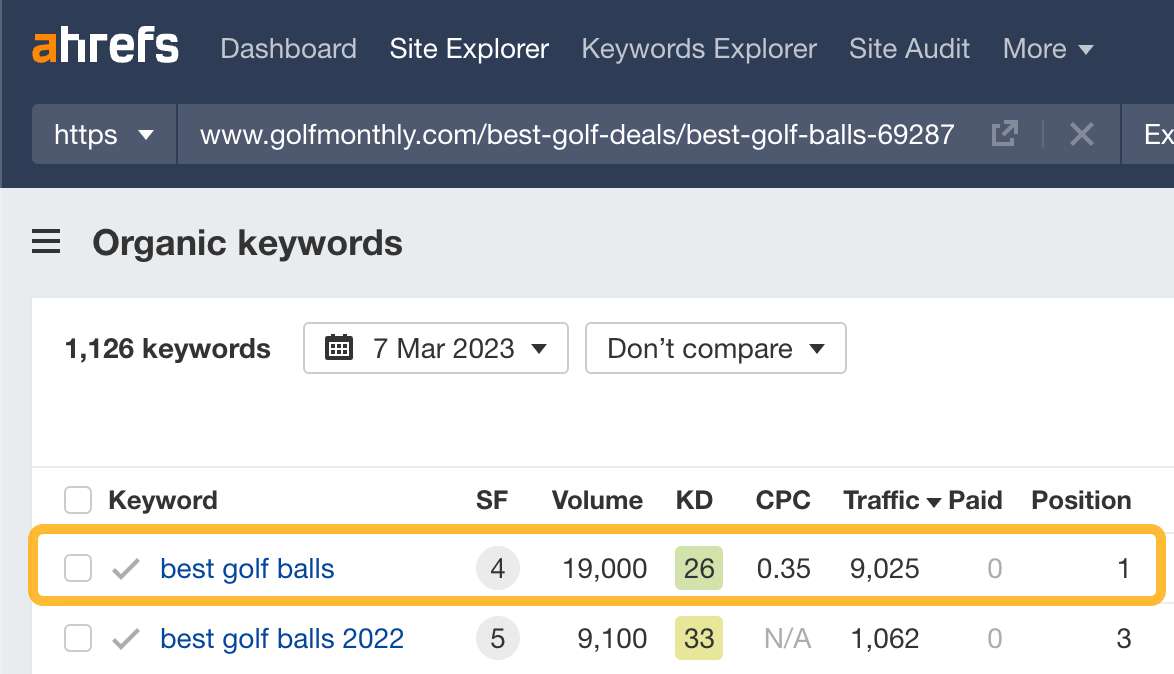
Image Source: Ahrefs
By grouping keywords with the same parent topic together, you can create clusters that are likely to perform well in search results.
3. SERP Similarity Clustering
And then there’s SERP similarity clustering. This method involves comparing the search engine results pages (SERPs) for different keywords, and grouping them based on how similar the results are.
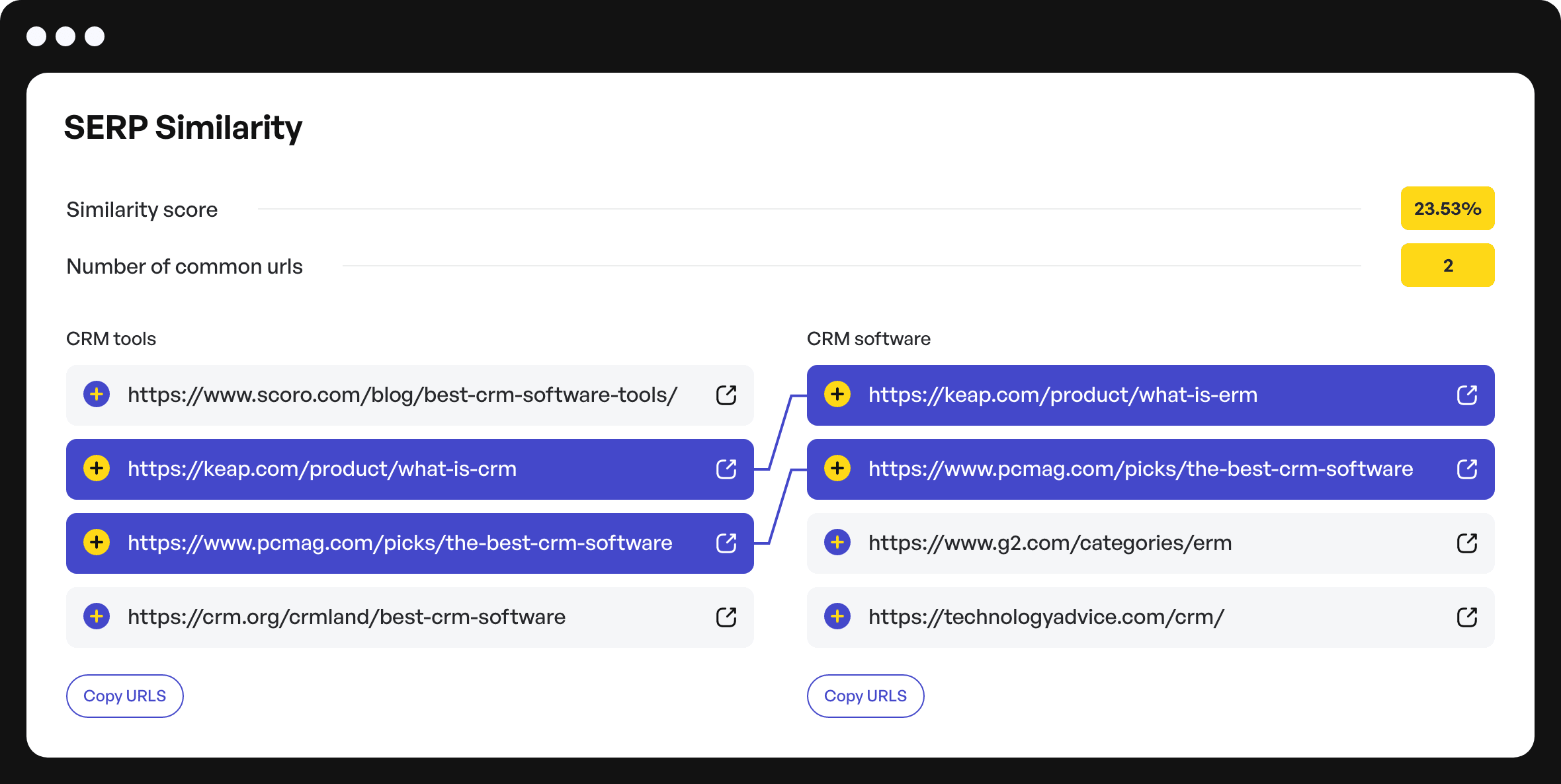
Image Source: Keyword Insights
If the same pages rank highly for two different keywords, those keywords are probably related. This method can be done manually for a few keywords, but for larger keyword lists, you’ll probably want to use a dedicated keyword clustering tool.
Tools for Keyword Clustering
You’re ready to start keyword clustering and looking for some tools to get the job done. Let’s take a look at some of the most useful tools, in our opinion, to make your life a lot easier.
1. Semrush. This is a comprehensive SEO tool that offers a range of features, like keyword research, competitor analysis, and of course, keyword clustering. Their Keyword Magic Tool is great for finding related keywords and grouping them into clusters.

Image Source: Semrush
2. Ahrefs. Another all-in-one SEO tool, Ahrefs offers a keyword explorer feature that can help you find related keywords. While it doesn’t offer keyword clustering per se, you can use the data it provides to create your own clusters.
3. Keyword Cupid. This tool is dedicated to keyword clustering. It uses machine learning algorithms to analyze SERP data and group related keywords together. It’s a bit more advanced, but if you’re serious about keyword clustering, it’s worth checking out.
4. Google Keyword Planner. While not a keyword clustering tool in the traditional sense, Google Keyword Planner is a great place to start your keyword research. You can find related keywords and their search volumes, which you can then group into clusters manually.
https://www.youtube.com/watch?v=S4m-t8vaUdo
Video Source: Metrics Media X
5. Moz Keyword Explorer. Moz’s tool offers keyword suggestions, SERP analysis, and search volume data. Like Ahrefs, it doesn’t offer keyword clustering, but the data it provides can be used to create your own clusters.
The best tool for your business will always depend on your needs, resources, and how deep you want to dive into keyword clustering (or how much time you have to dedicate).
Start Creating Content With Keyword Clusters Today
When you get into keyword clustering, you’re showing Google that your website is a big deal in your industry and that you have top-notch content to offer. You’re also feeding Google’s content signals the clusters of content they’re trained to spot and boost in search results.
Keyword clustering means thinking bigger about your content. If you want your web pages to keep ranking well in the long run, it’s time to get your on-page strategy up to speed with Google.
Get started today by checking out our weekly blog content service, or schedule a free consultation now to learn more!






